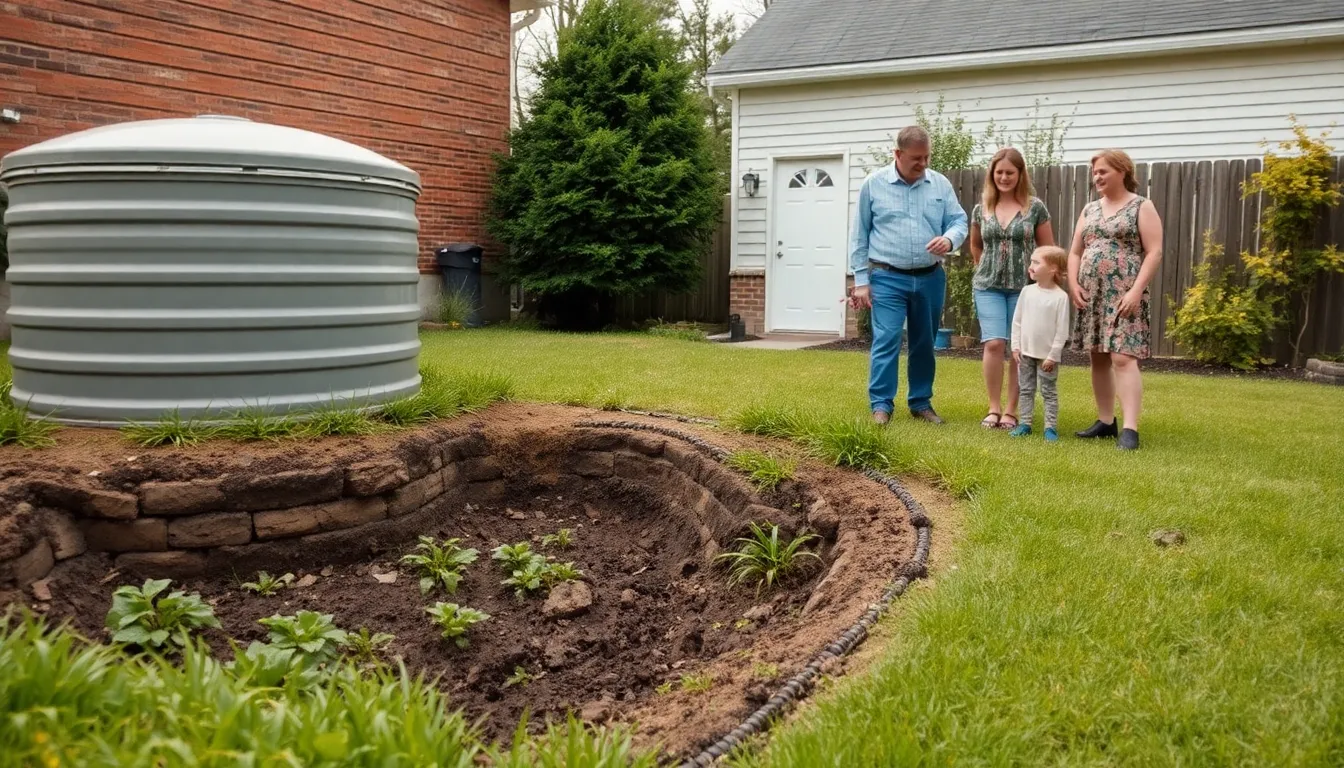Table of Contents
ToggleWhen it comes to home maintenance, septic systems often get the short end of the stick. They’re like the unsung heroes of waste management, quietly doing their job while homeowners blissfully ignore them. But neglecting septic care can lead to disastrous—and smelly—consequences. It’s time to give these underground wonders the attention they deserve.
Importance Of Septic System Care
Regular maintenance of septic systems proves essential for effective waste management. Homeowners often overlook these systems, leading to significant complications. Neglect can result in clogs, backups, and costly repairs.
Proper care prolongs the lifespan of the system, avoiding expensive replacements. Understanding the sludge buildup helps maintain optimal function. System inspections every three to five years ensure early detection of potential issues.
Safe disposal of wastewater depends on a well-functioning septic system. Neglecting this responsibility can lead to environmental contamination. Contaminated groundwater can pose serious health risks, demonstrating why care is critical.
Monitoring water usage within the household aids in preventing overload. Excessive water can strain the system, causing failures. Educating family members on what can and cannot go down the drain minimizes risks.
Utilizing enzyme treatments supports the breakdown of solids, enhancing system efficiency. Routine pumping of the tank removes accumulated waste, promoting better flow.
Ultimately, prioritizing septic system care safeguards both property and public health. Implementing these practices protects resources and maintains home value.
Common Septic System Issues

Septic systems can experience several common issues that require attention. Understanding these problems helps homeowners take preventative measures.
Clogged Drain Fields
Clogs often occur in drain fields when solid waste accumulates or roots infiltrate the area. Homeowners might notice slow drainage or standing water above the drain field. Regular inspections help identify clogs before they worsen. Using biodegradable products and reducing water usage can prevent buildup. Additionally, avoiding driving over the drain field protects its integrity.
Backup Problems
Backup problems typically arise when the septic tank overflows or the drain field is unable to handle wastewater. Symptoms can include gurgling sounds in plumbing or sewage odor near drains. Addressing backup issues immediately prevents further damage and costly repairs. Homeowners should ensure their tanks are pumped every three to five years to minimize overflow risks. Teaching family members about proper waste disposal also mitigates potential blockages.
Maintenance Tips For Septic Systems
Proper maintenance ensures the longevity and efficiency of septic systems. Following these tips minimizes potential problems and promotes effective waste management.
Regular Pumping Schedule
Establishing a regular pumping schedule is vital. Homeowners should aim to pump the septic tank every three to five years, depending on system size and household usage. This practice prevents solid waste buildup, reducing the risk of clogs and backups. Additionally, regular pumping allows for the inspection of tank conditions and can help identify underlying issues. Monitoring household water usage also plays a critical role, as excessive water can fill the tank quickly. By adhering to this schedule, families can protect both their household and public health.
Proper Waste Disposal Practices
Proper waste disposal directly impacts septic system health. Homeowners need to avoid flushing non-biodegradable items, such as wipes, sanitary products, or chemicals. These materials can cause significant clogs and disrupt the system’s natural processes. Instead, using biodegradable products and composting organic waste provides an eco-friendly solution. Educating family members on appropriate disposal practices fosters a shared responsibility for maintaining the system. This approach significantly reduces the risk of costly repairs while promoting a cleaner environment.
Signs Your Septic System Needs Attention
Homeowners should remain vigilant for signs indicating a septic system needs attention. Identifying issues early can save time and money while maintaining system health.
Unpleasant Odors
Unpleasant odors around the septic tank or drain field signal potential problems. These smells often indicate that the tank is full or leaking. Nearby standing water may also contribute to lingering foul odors. Homeowners should investigate swiftly, as these scents can affect indoor air quality and point to significant issues. Addressing these problems promptly helps to prevent costly repairs and environmental hazards. Regular inspections aid in catching potential leaks before they escalate.
Slow Draining
Slow draining in sinks, toilets, or showers often means the septic system needs attention. These slowdowns typically occur due to clogs or blockages within the system. Homeowners may notice water pooling around the drain field, indicating improper drainage. Investigating these areas quickly keeps the system functioning effectively. Potential solutions include pumping the tank or clearing out clogs with professional help. Vigilance in monitoring drainage patterns ensures that issues are addressed before they escalate into major problems. Routine maintenance can significantly enhance drainage efficiency.
Maintaining a septic system is essential for homeowners who want to avoid costly repairs and ensure efficient waste management. By staying proactive with regular inspections and pumping schedules, they can prevent serious issues like clogs and backups. Educating family members on proper disposal practices and monitoring water usage further enhances system longevity. Recognizing signs that indicate a system needs attention can save time and money in the long run. With the right care and attention, homeowners can protect their property and contribute to a healthier environment.







